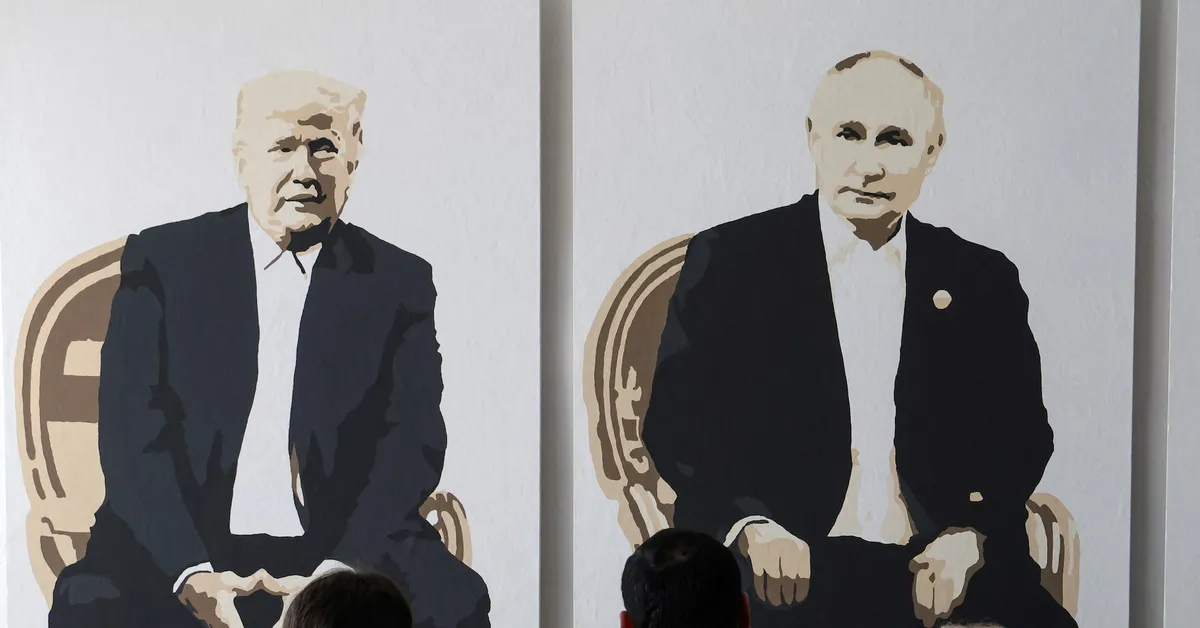
In a recent turn of events, Ukraine and its allies are facing a significant diplomatic setback. After months of efforts to align U.S. President Donald Trump with their cause in the ongoing war initiated by Russia, it seems they have returned to square one. During a two-hour conversation with Russian President Vladimir Putin, Trump abandoned his previous call for an unconditional ceasefire lasting 30 days, which he hoped would pave the way for lengthy peace negotiations.
Ukraine had backed Trump's proposal for a ceasefire, but Russia remained unyielding. This abrupt change in Trump’s stance signals that the conflict he once claimed he could resolve in just 24 hours is no longer within his control, leaving Ukraine vulnerable and its allies increasingly concerned about their position. This development is particularly disheartening for Kyiv, occurring less than three months after Trump's public fallout with Ukrainian President Volodymyr Zelenskiy.
In the weeks leading up to the phone call, Trump had hinted at imposing tougher sanctions on Russia if tangible progress toward peace was not achieved. Ukraine was optimistic that this approach would compel Putin to reconsider his maximalist demands during negotiations. However, following the conversation with Putin, Trump appears to have shifted from a hardline 'stick' approach to a more conciliatory 'carrot' strategy, suggesting a future economic partnership with the U.S. contingent on the war's resolution.
Following Trump's call with European leaders, including Zelenskiy, there was a palpable sense of shock regarding his new position. A European diplomat candidly expressed disappointment, stating, "It is impossible to trust him for more than one day," highlighting Trump's apparent disinterest in Ukraine's plight. The sentiment among European allies remains uneasy, as they collectively announced new sanctions on Russia while vowing to maintain engagement with the United States.
Concerns regarding Putin's intentions are mounting, especially as his military continues to gain ground along a formidable 1,000-kilometer front. German Defence Minister Boris Pistorius articulated the prevailing sentiment, asserting that “Putin is not really interested in peace.” Orysia Lutsevych, head of the Ukraine Forum at Chatham House, echoed this view, emphasizing that for Russia, the battlefield and diplomacy are inextricably linked. She noted that Putin often gains leverage in negotiations through delays and by preventing Europe from consolidating its position.
The support from the United States has been crucial in Ukraine's resistance against Russian aggression. Trump's deviation from his predecessor Joe Biden's robust support for Kyiv raises significant concerns for Ukraine as it strives to keep the U.S. engaged. The upcoming expiration of military aid agreed upon under Biden poses a critical question for Ukraine: what will happen when that support runs out this summer?
While Europe has committed to sustaining direct aid and arms purchases for Ukraine, the U.S. must also approve the sale of its military hardware. Certain munitions, specifically air defenses and short-range guided missiles, cannot be easily replaced. Furthermore, the U.S. retains the capacity to impose economic pressure on Russia, which has shown resilience against Western sanctions but is beginning to feel the strain of the prolonged conflict.
As Ukraine's allies rally around Zelenskiy following this diplomatic blow, the reaction to Trump's recent phone call with Putin is particularly hard to accept. Many had hoped that Trump’s previous frustrations with Putin would lead to increased pressure on Moscow. Notably, a minerals deal signed between Ukraine and the U.S. last month was seen as progress, along with recent direct negotiations between Ukrainian and Russian officials.
Despite the current disappointment, European diplomats remain determined, stating, "It's one step forward, two or 10 steps back." They continue to advocate for communication with the Trump administration, urging it to apply pressure on Russia in hopes of facilitating a resolution to this ongoing conflict.